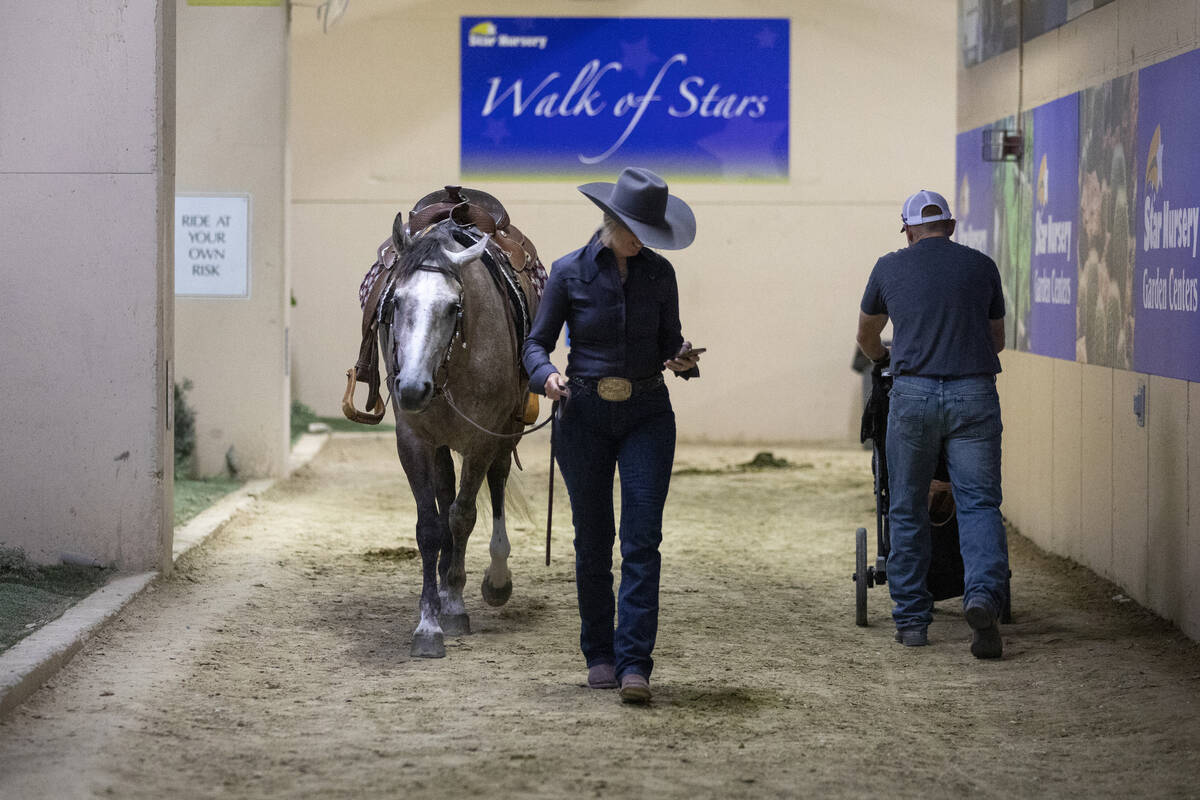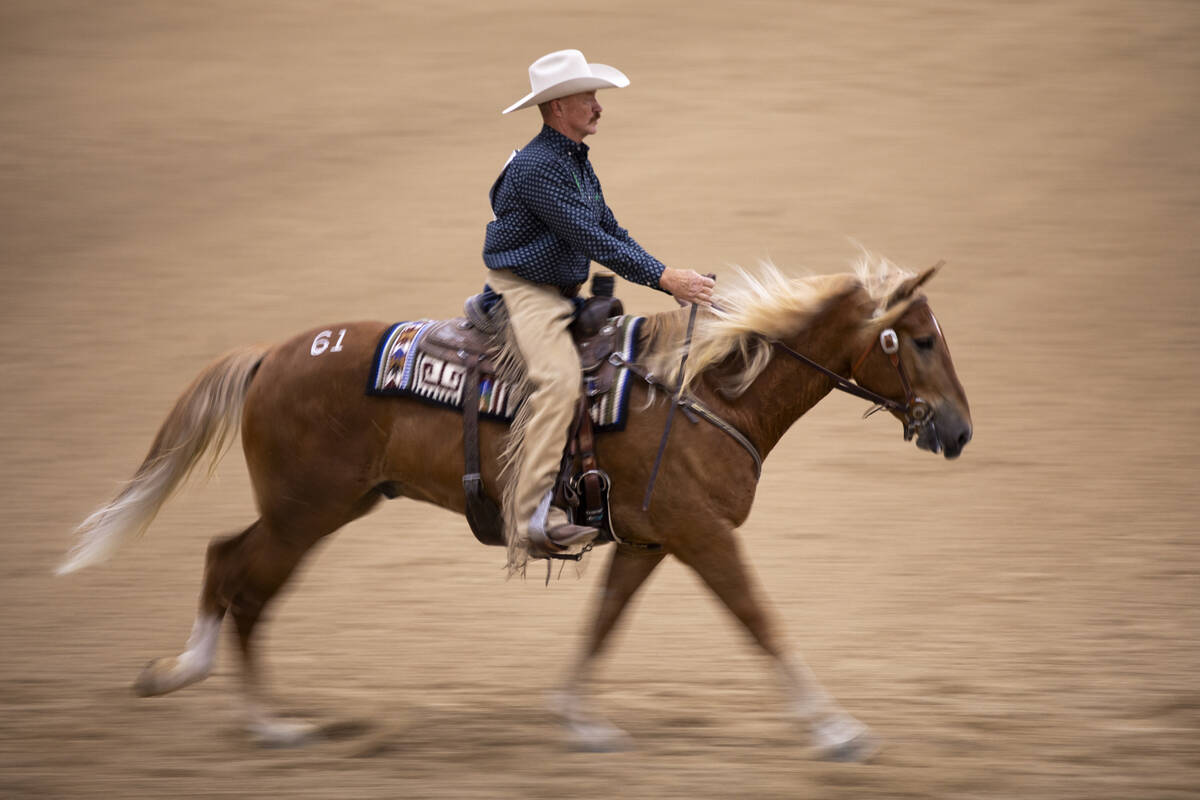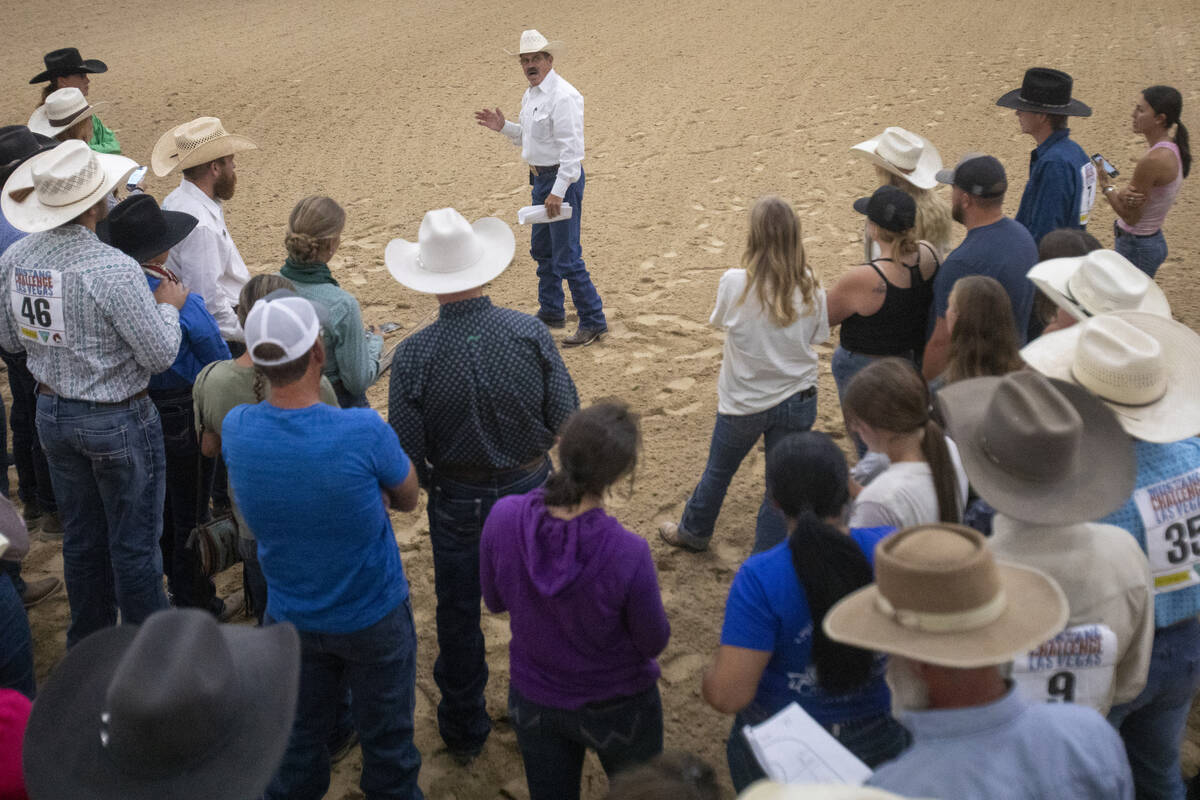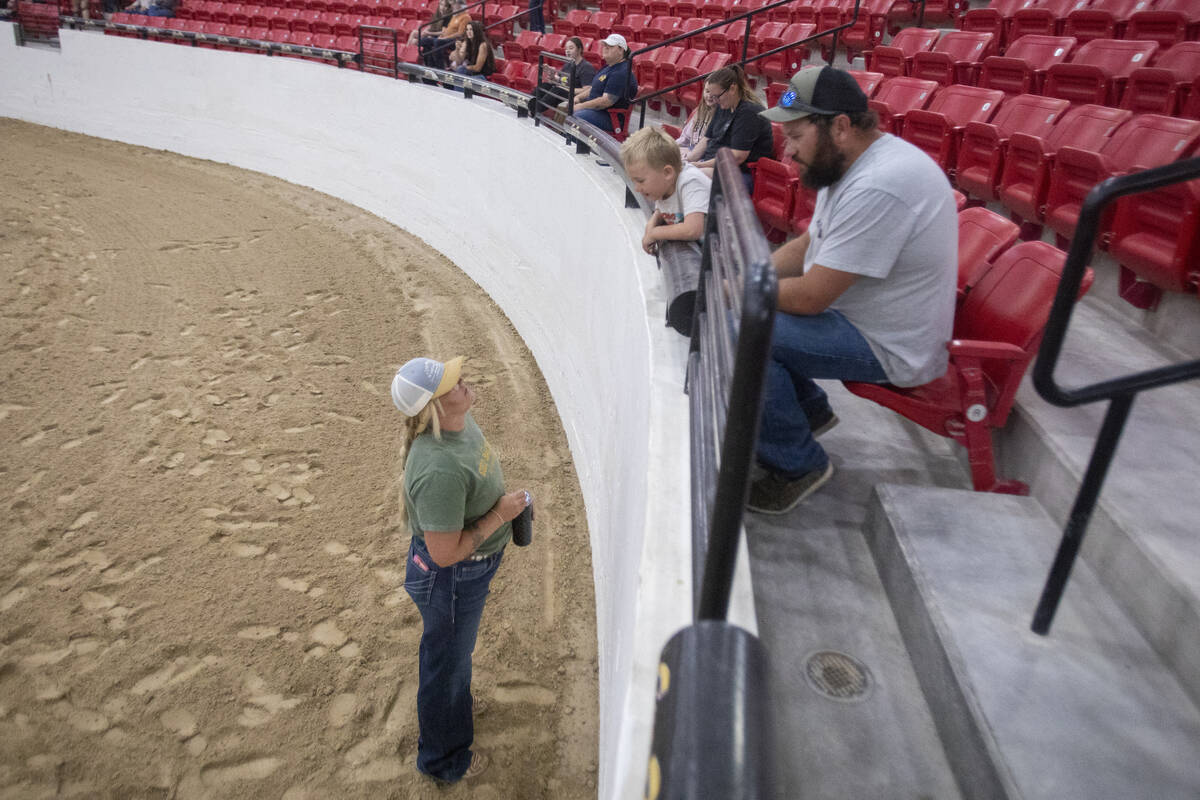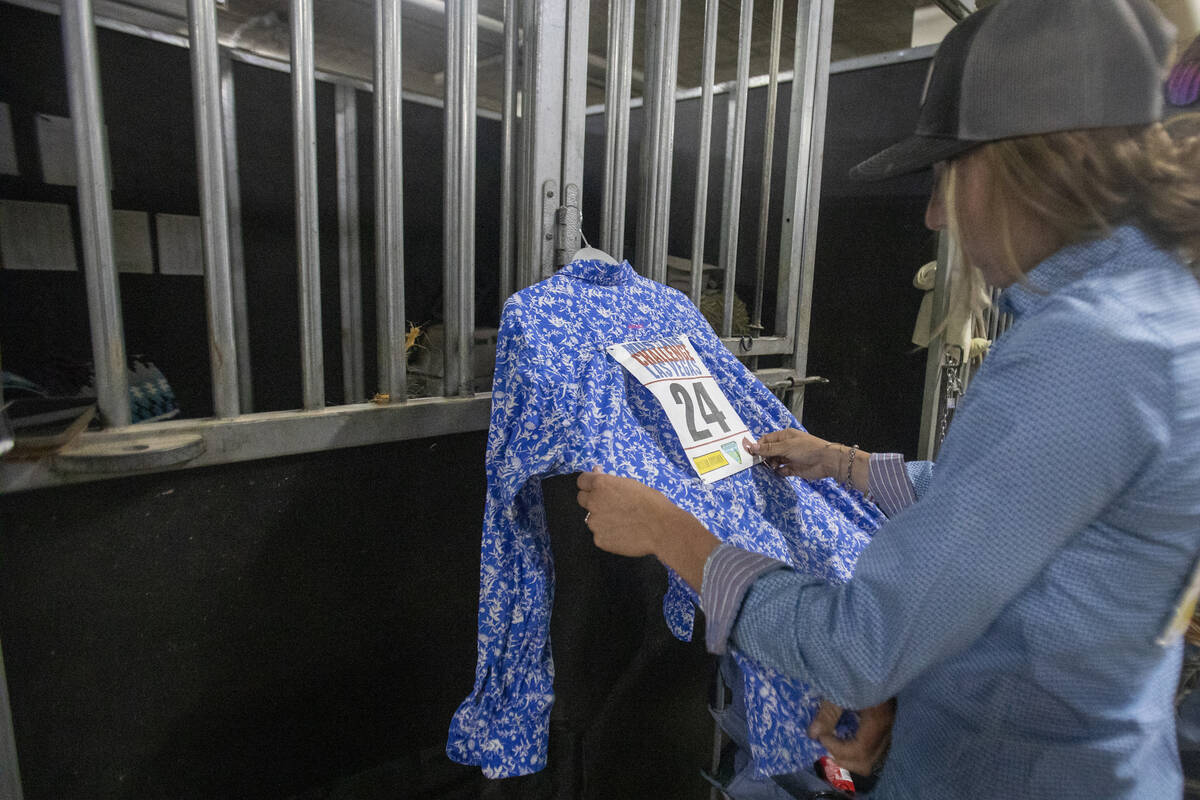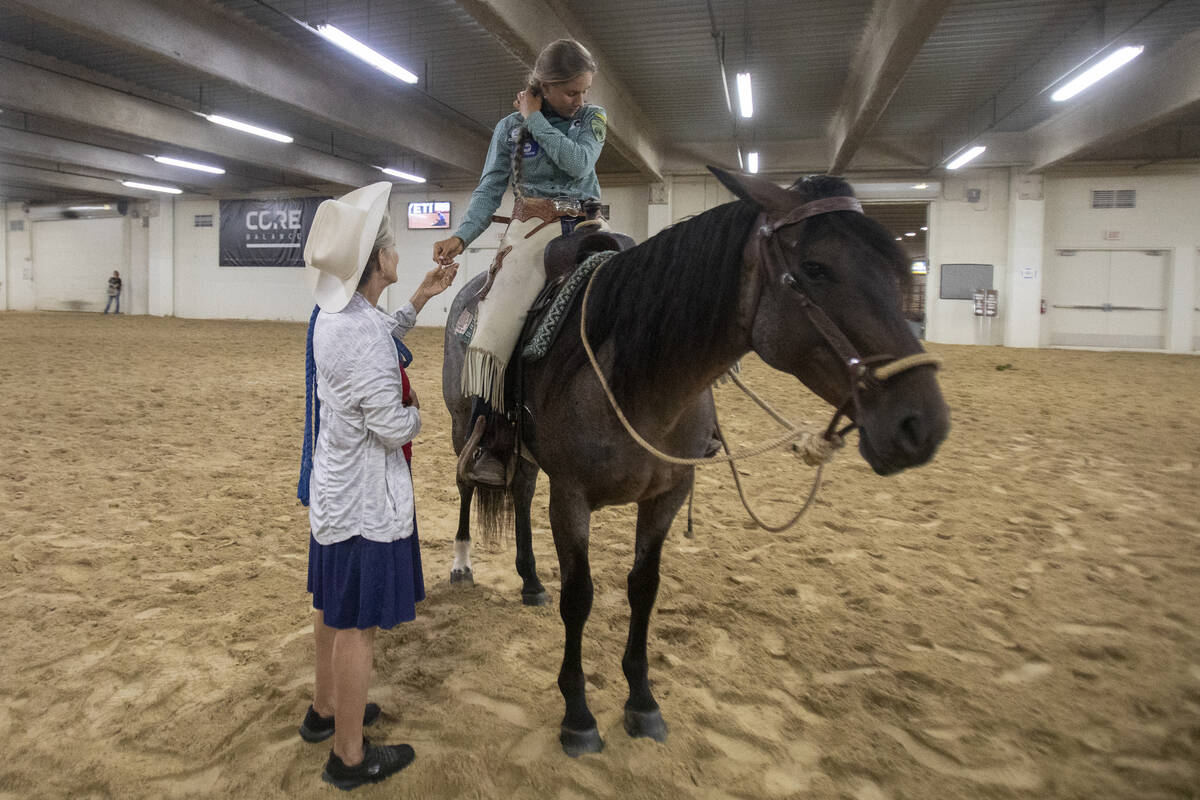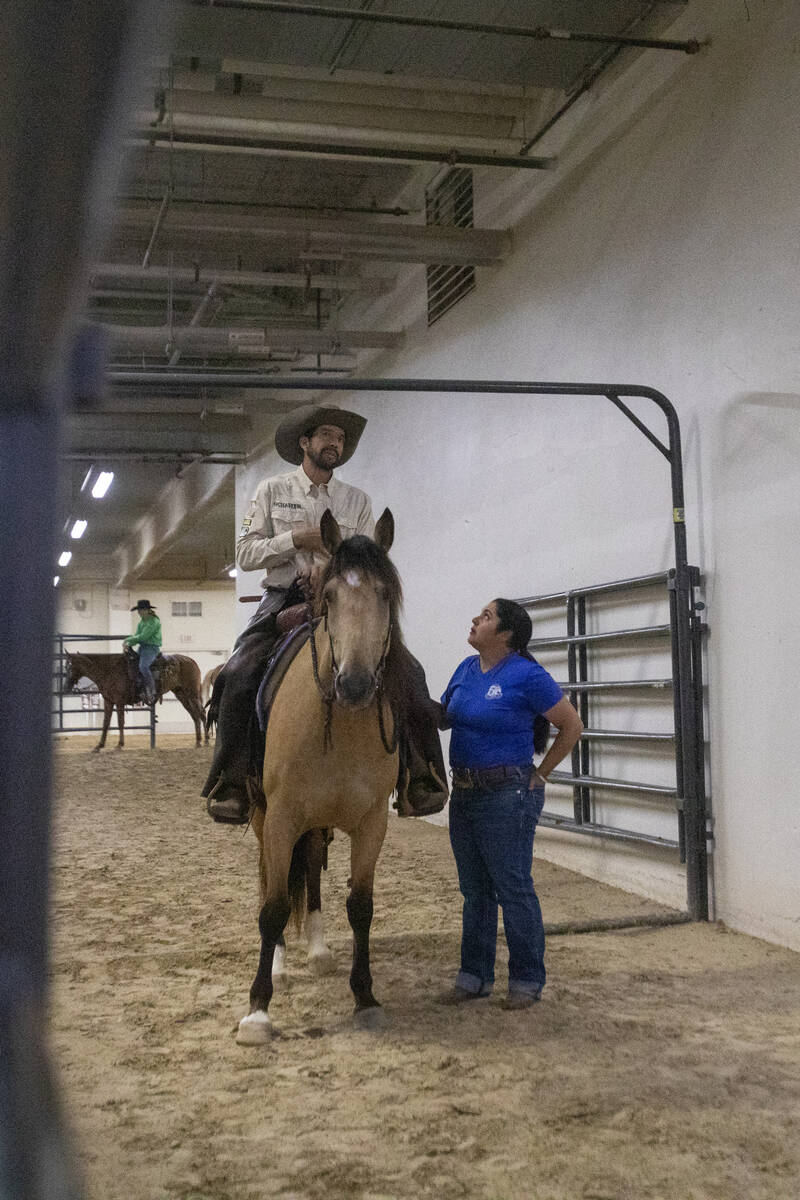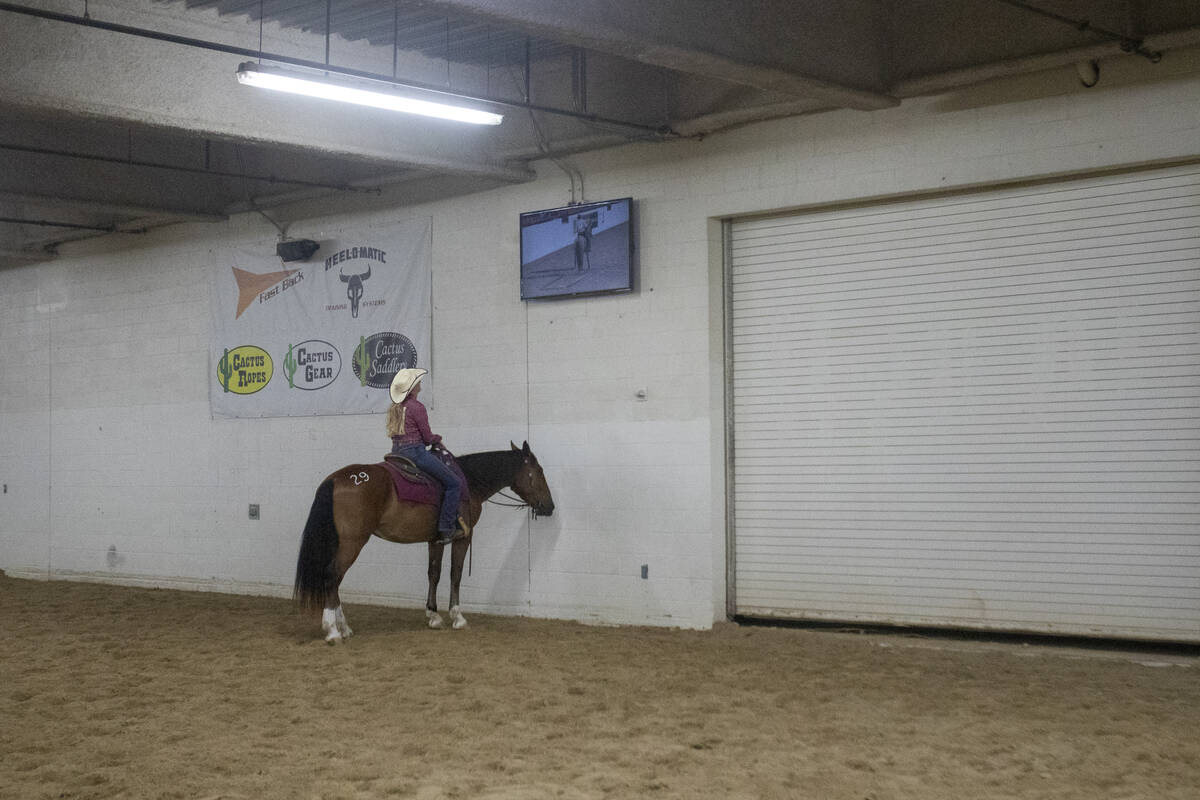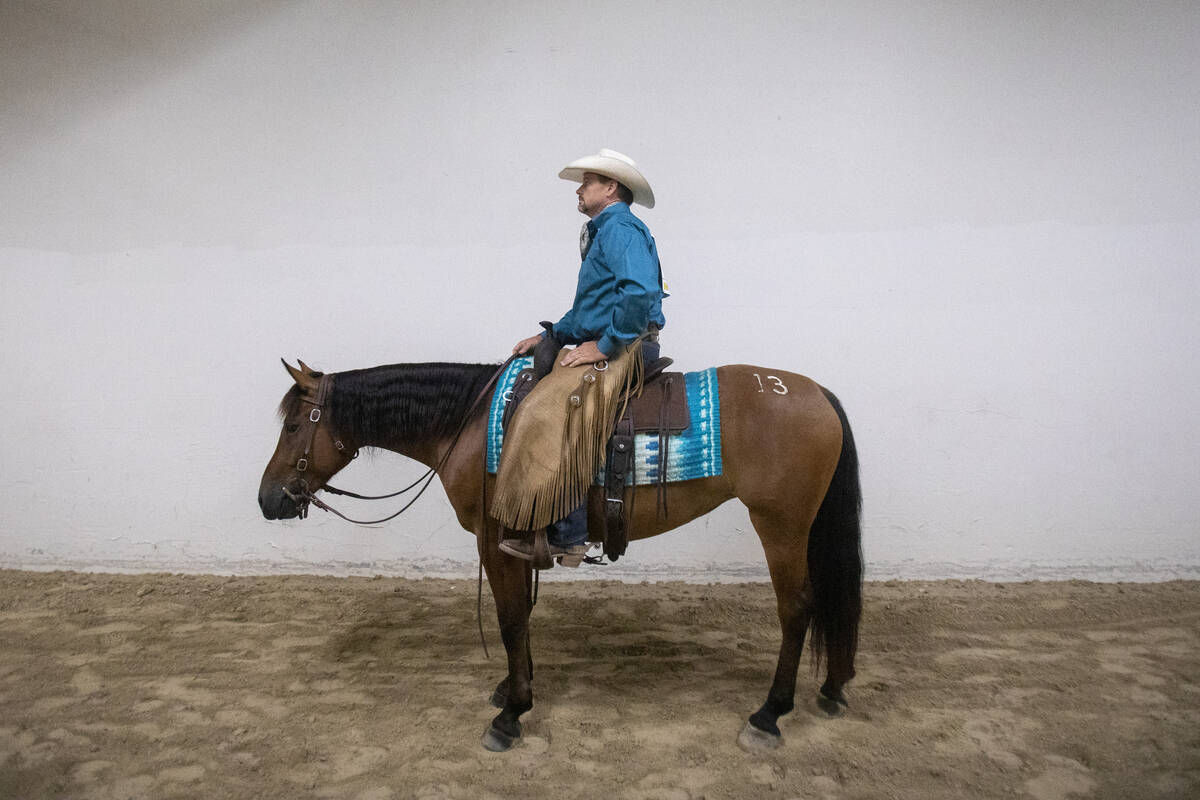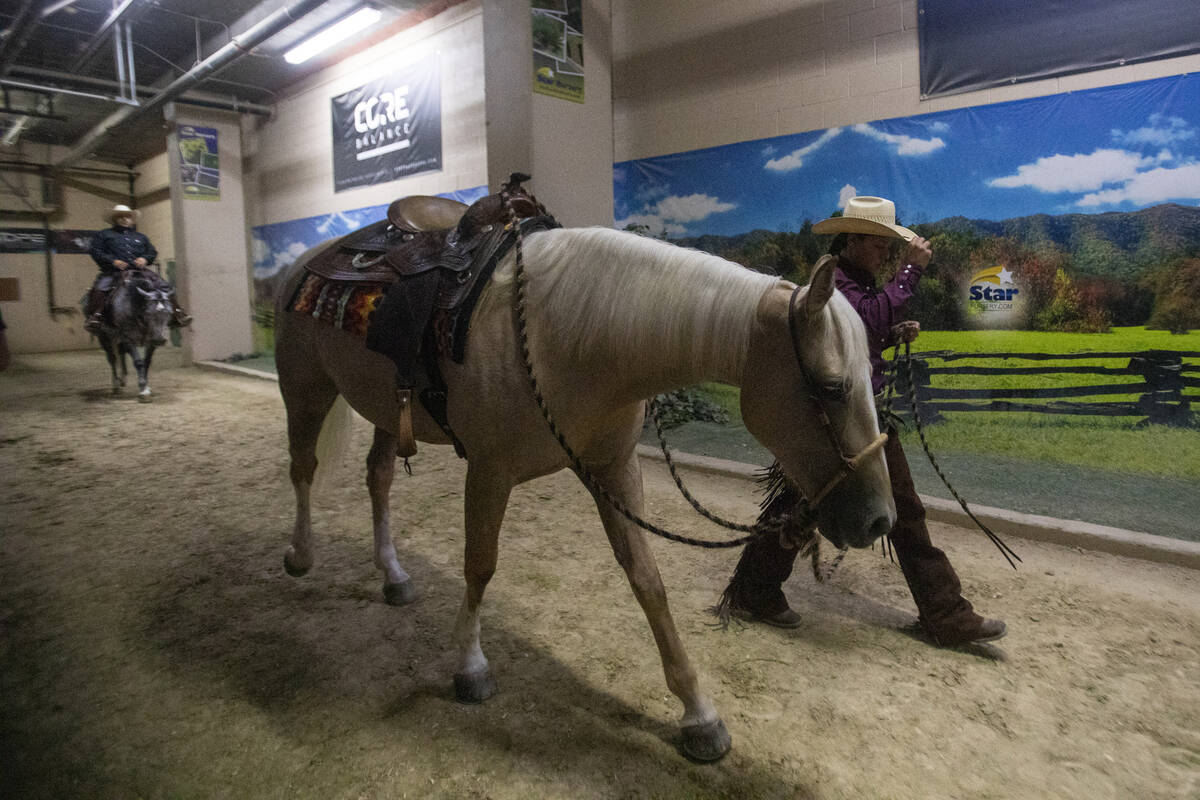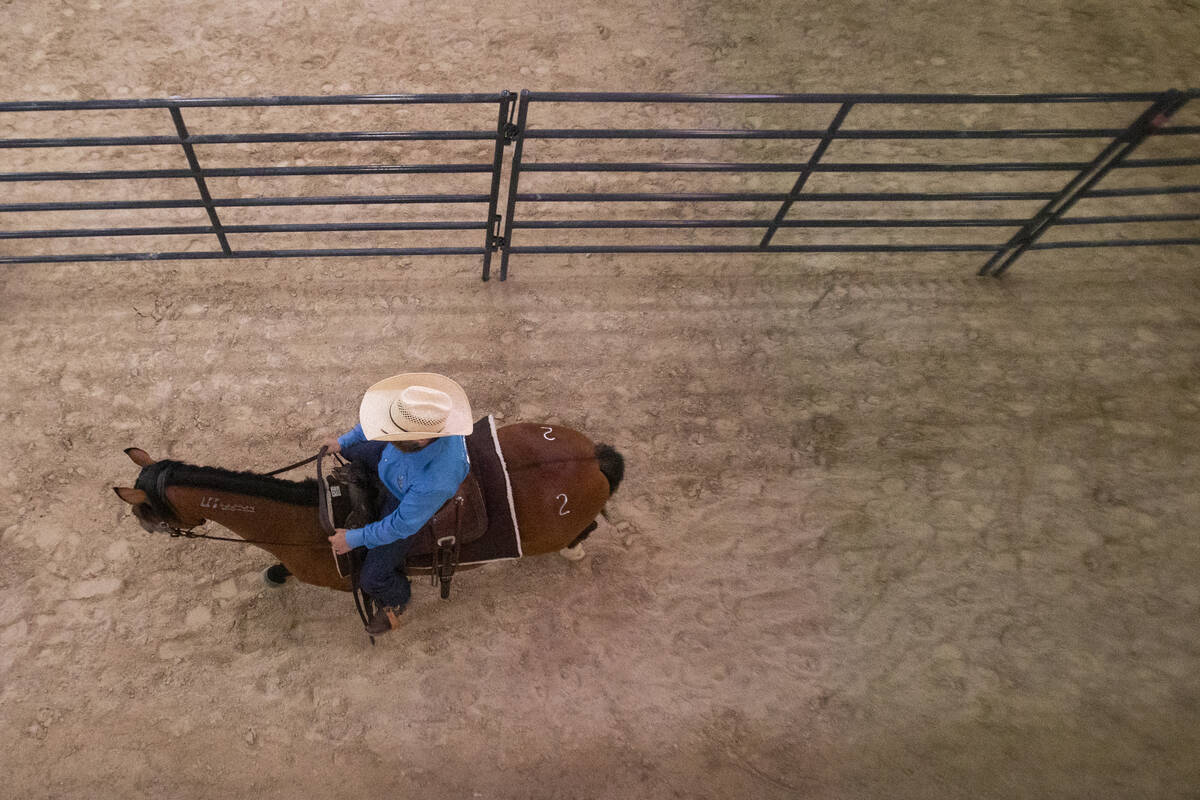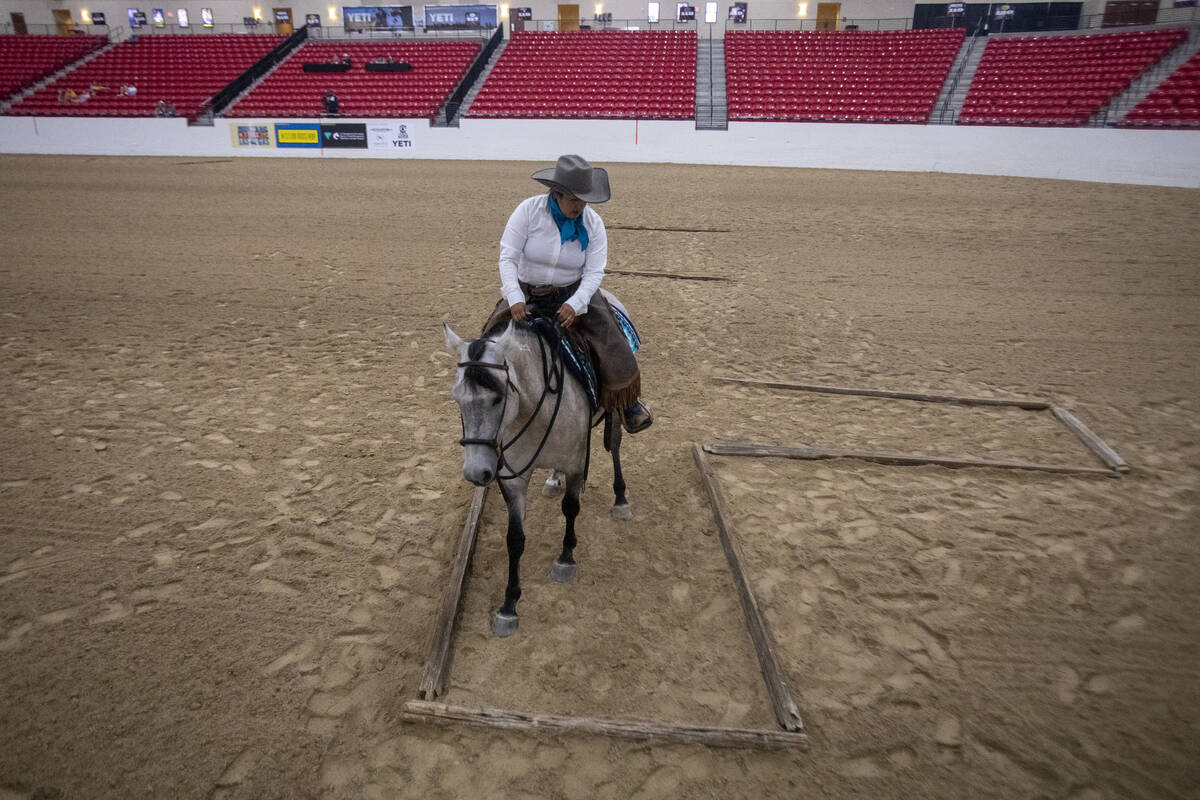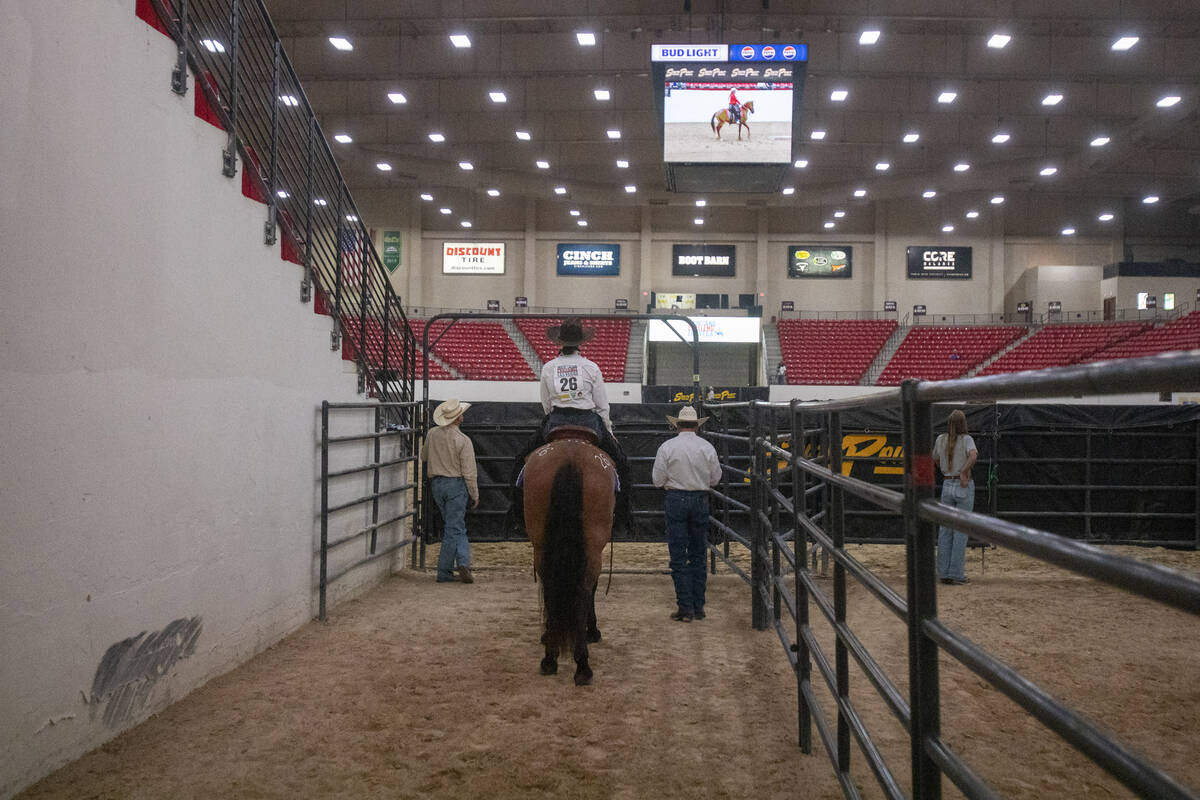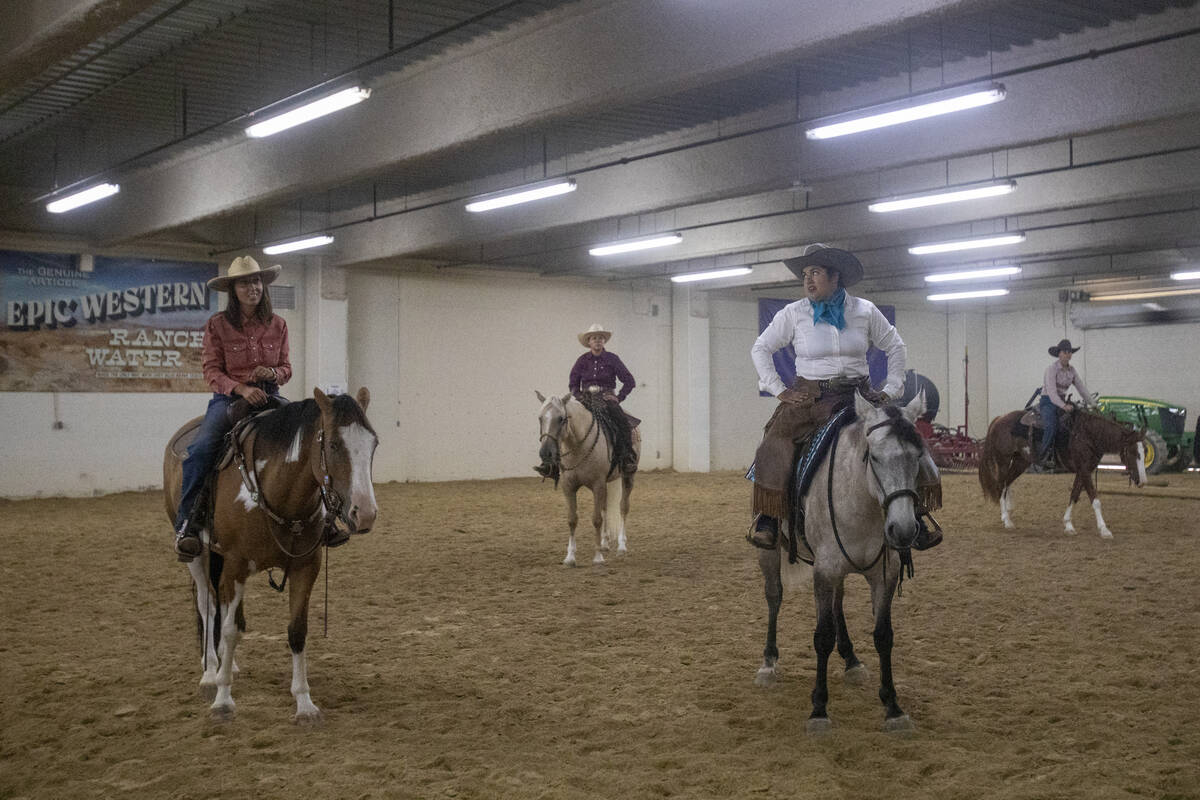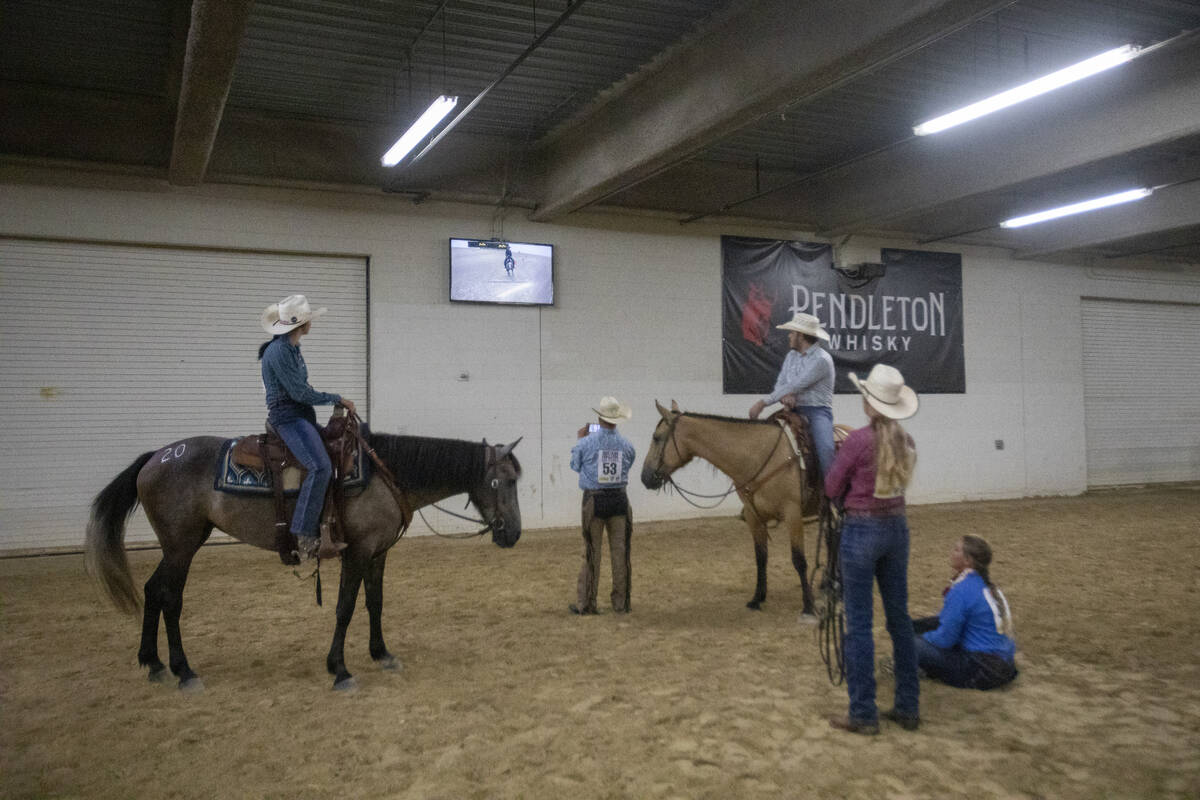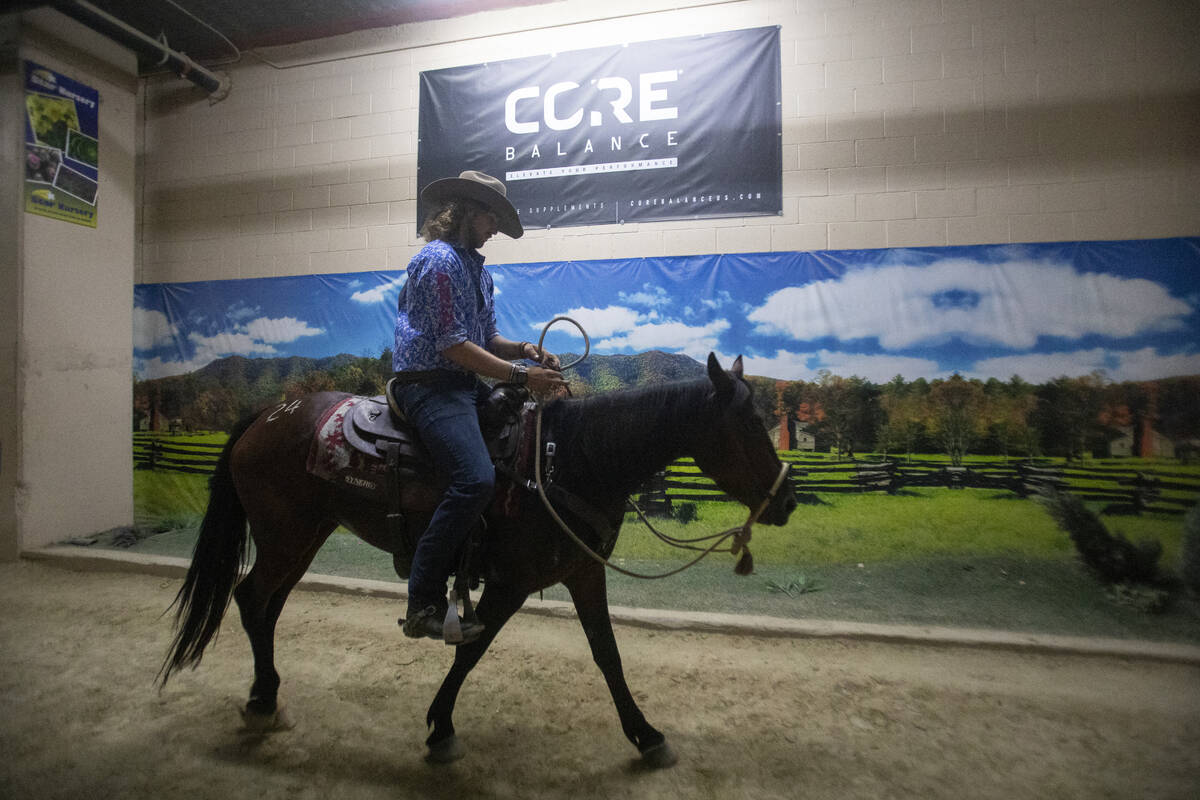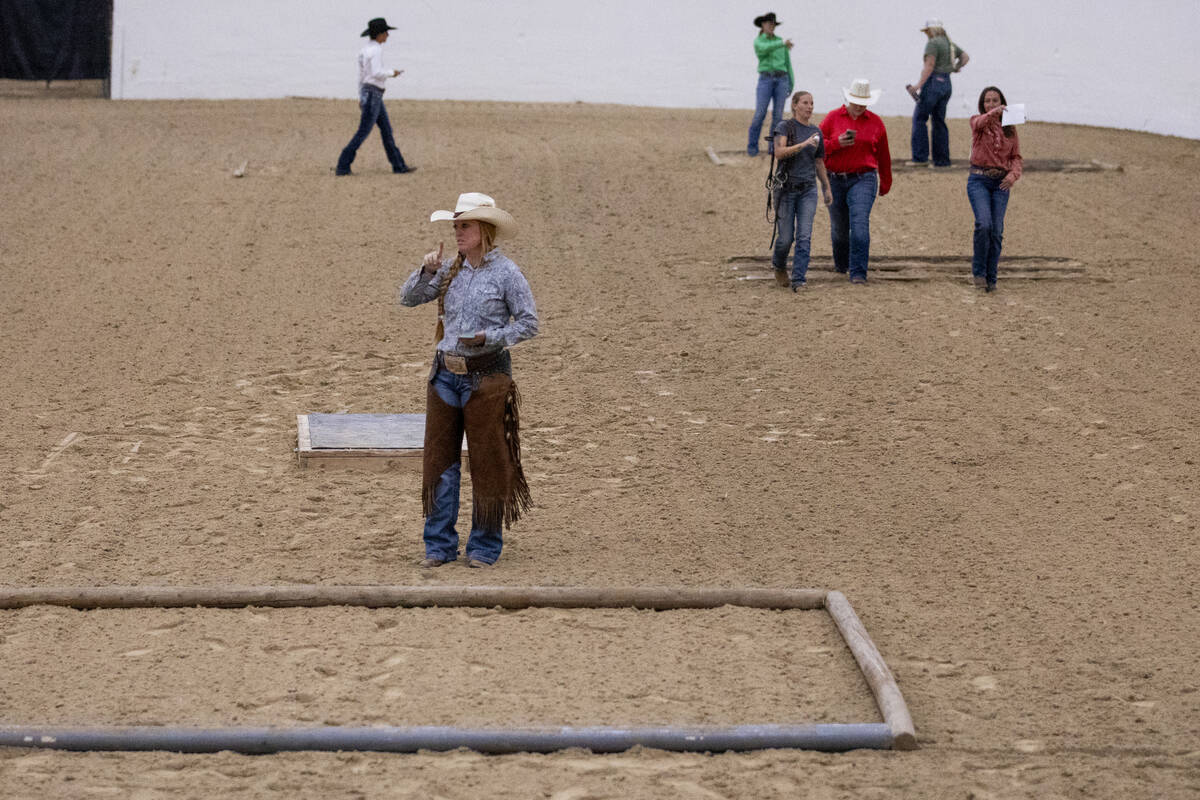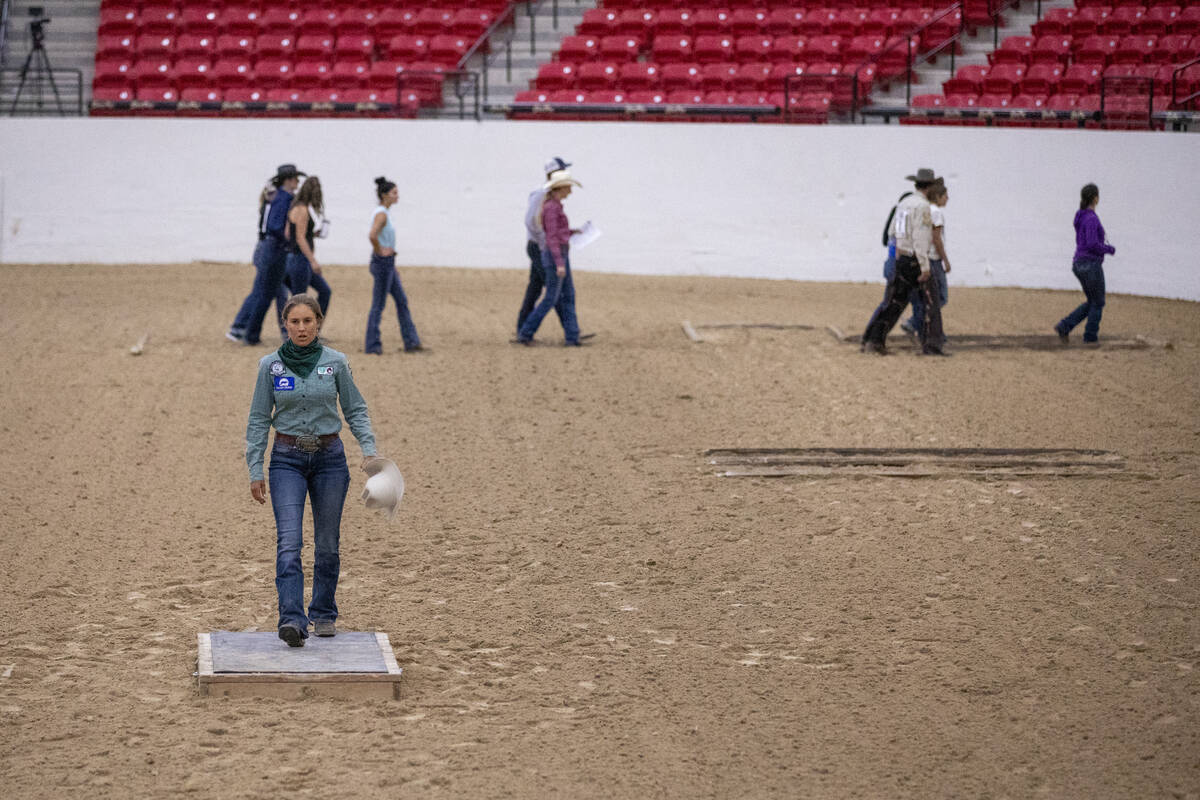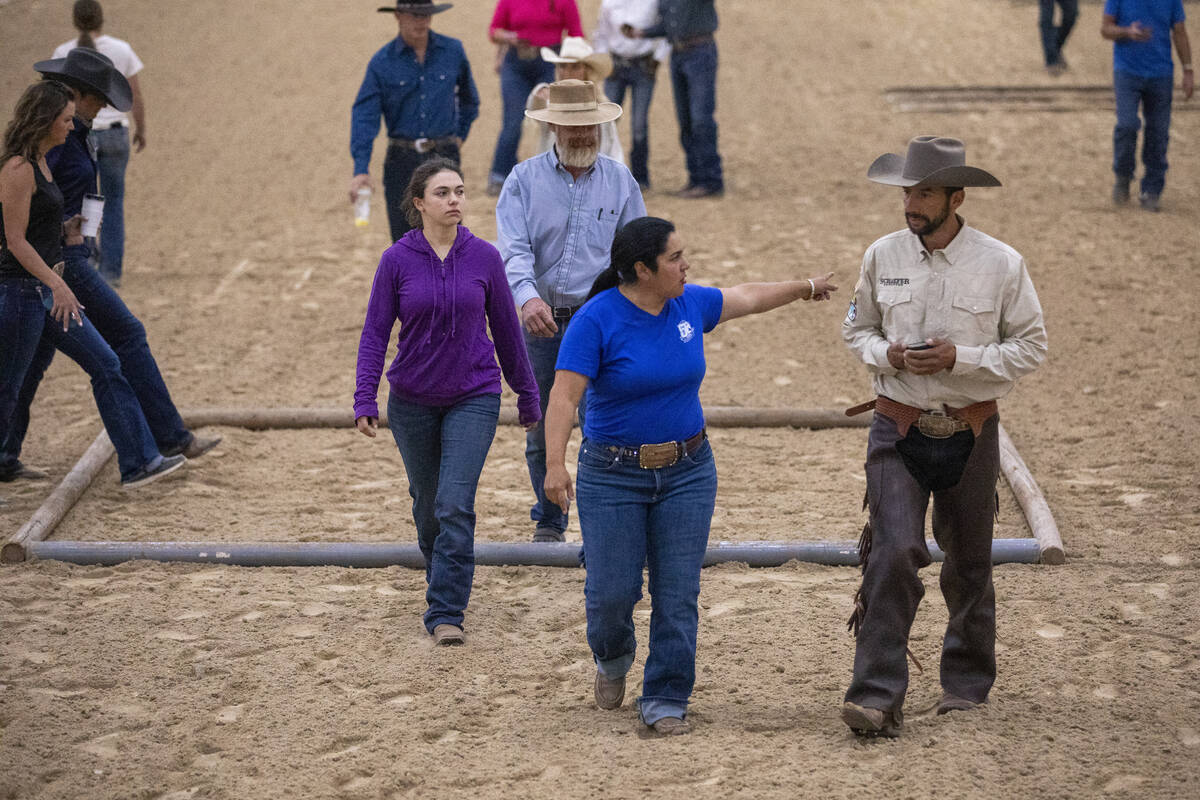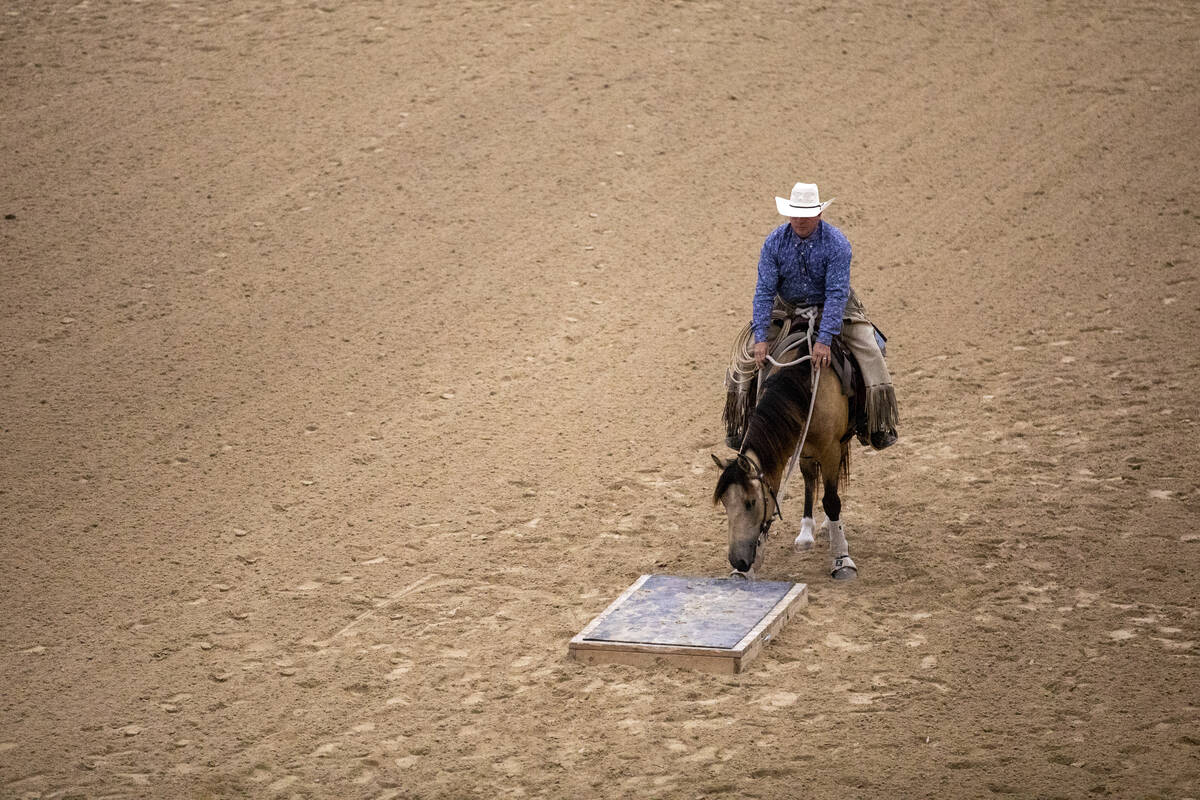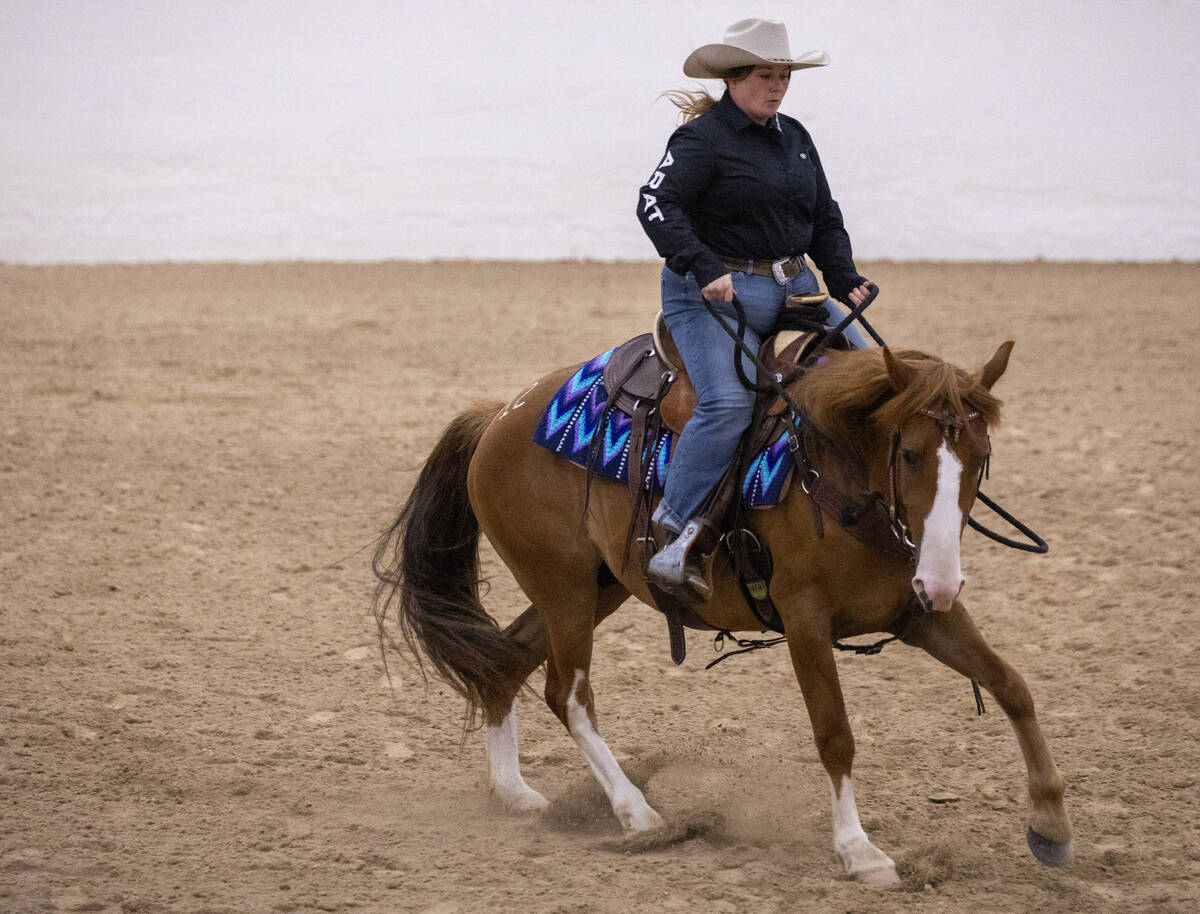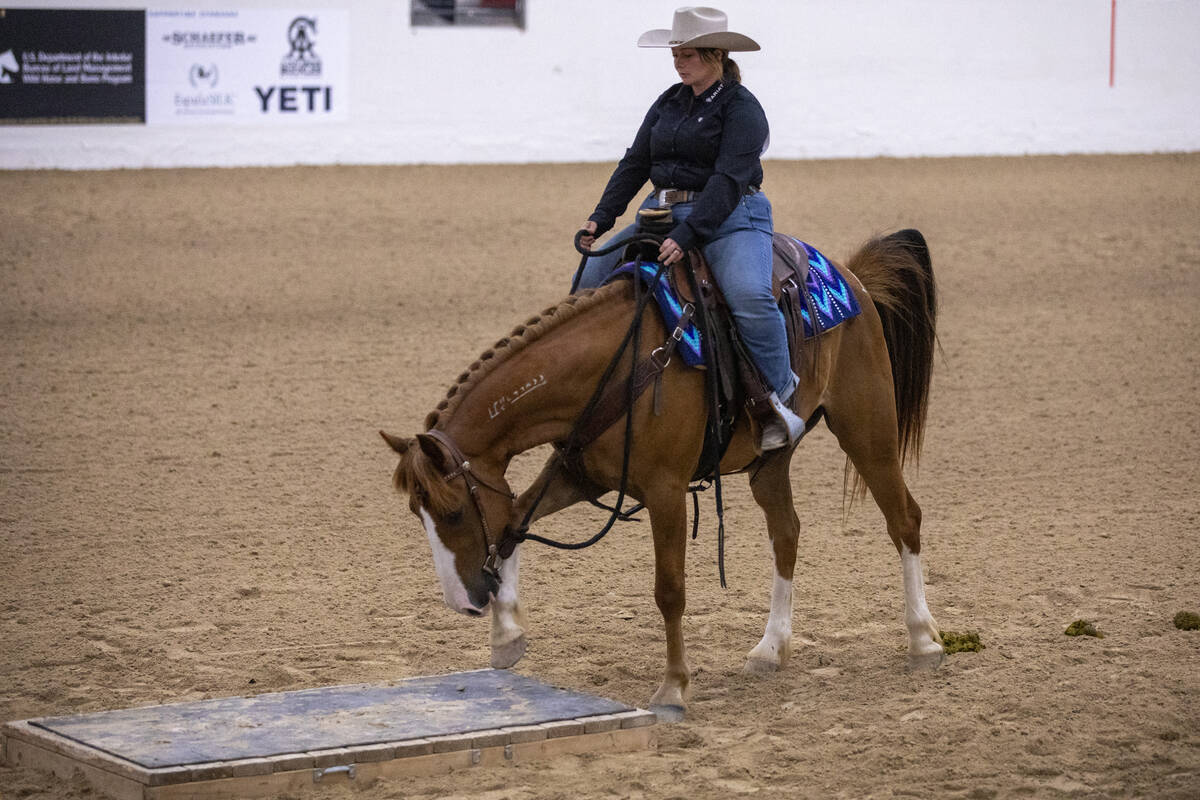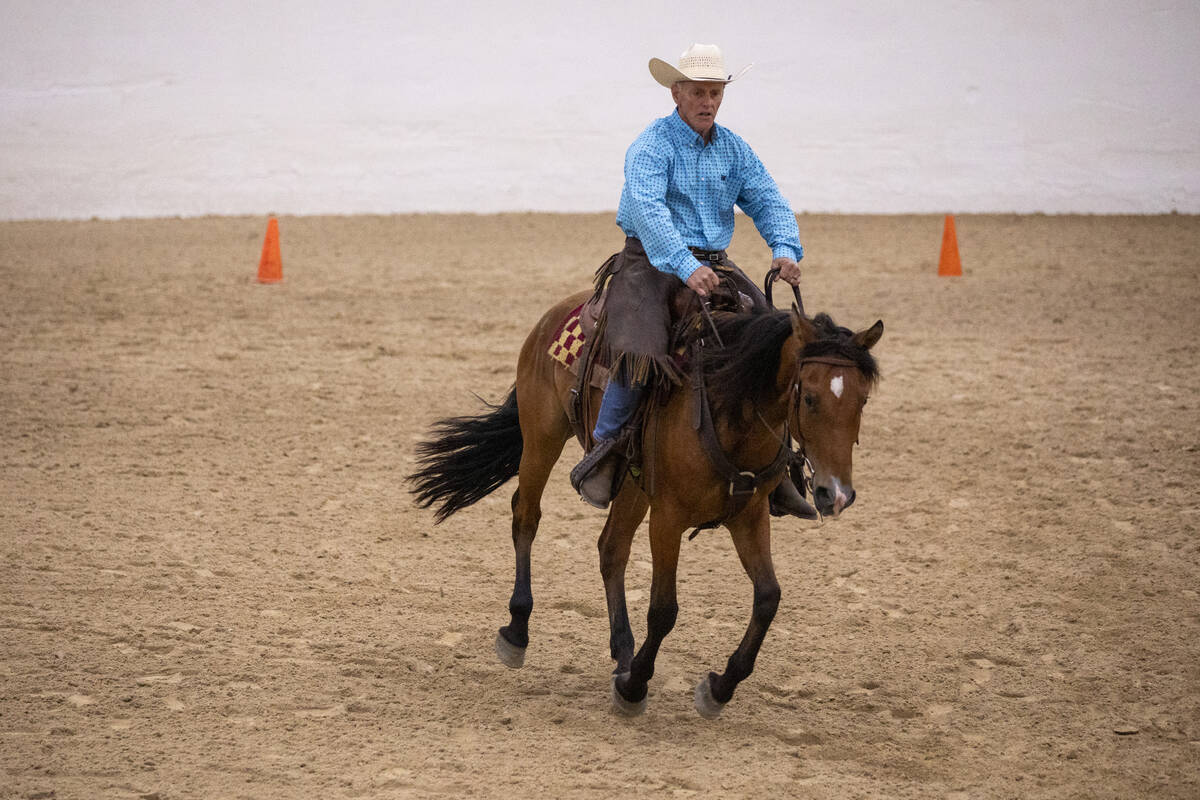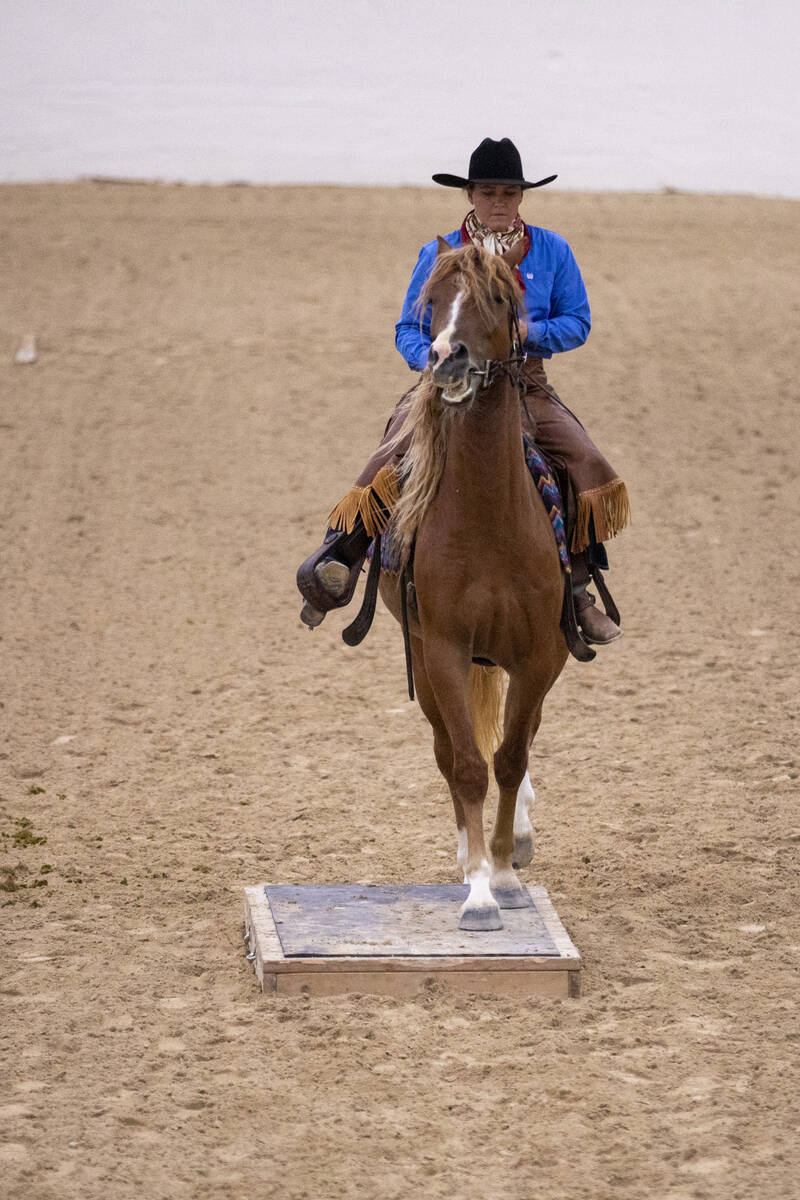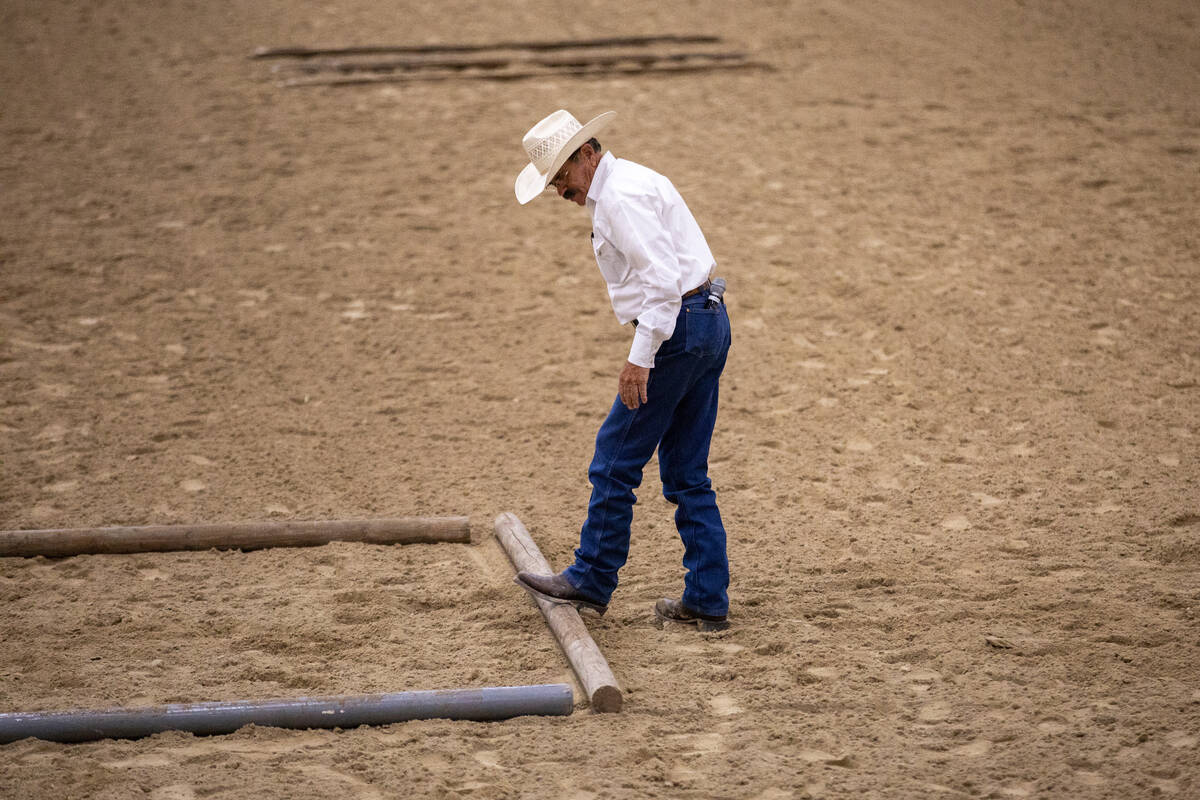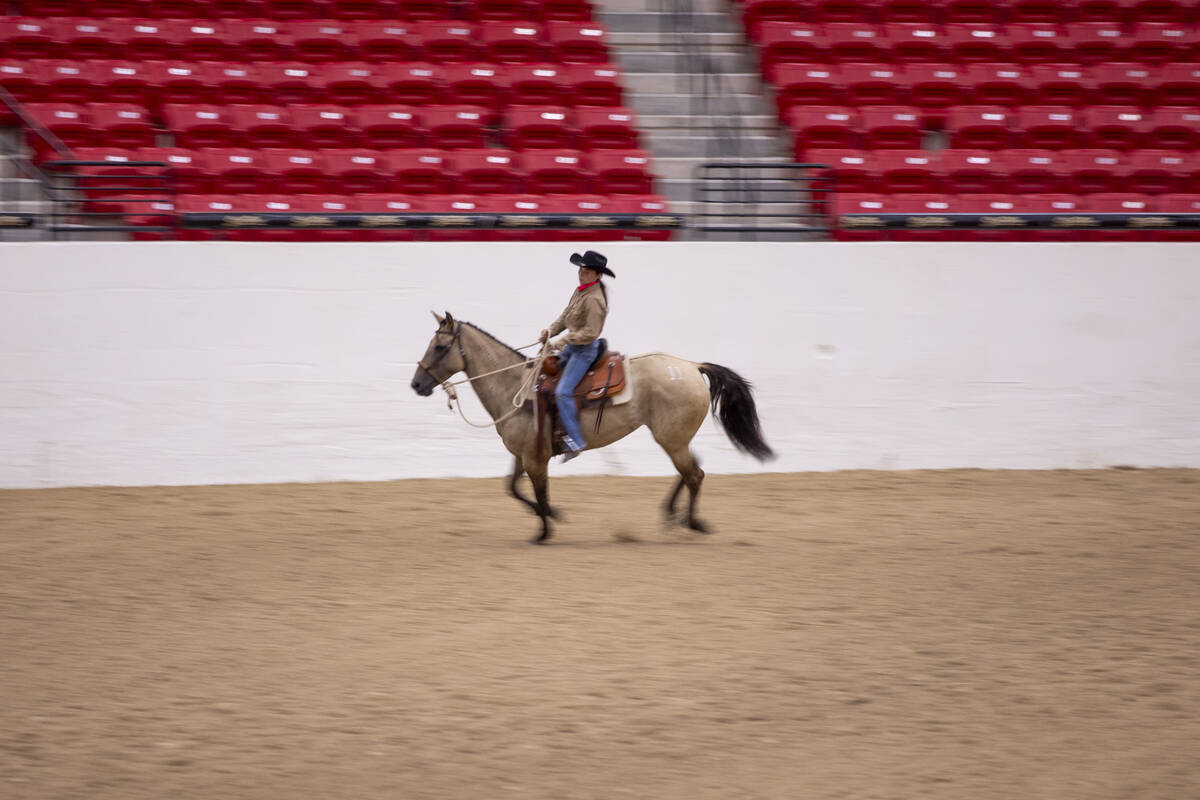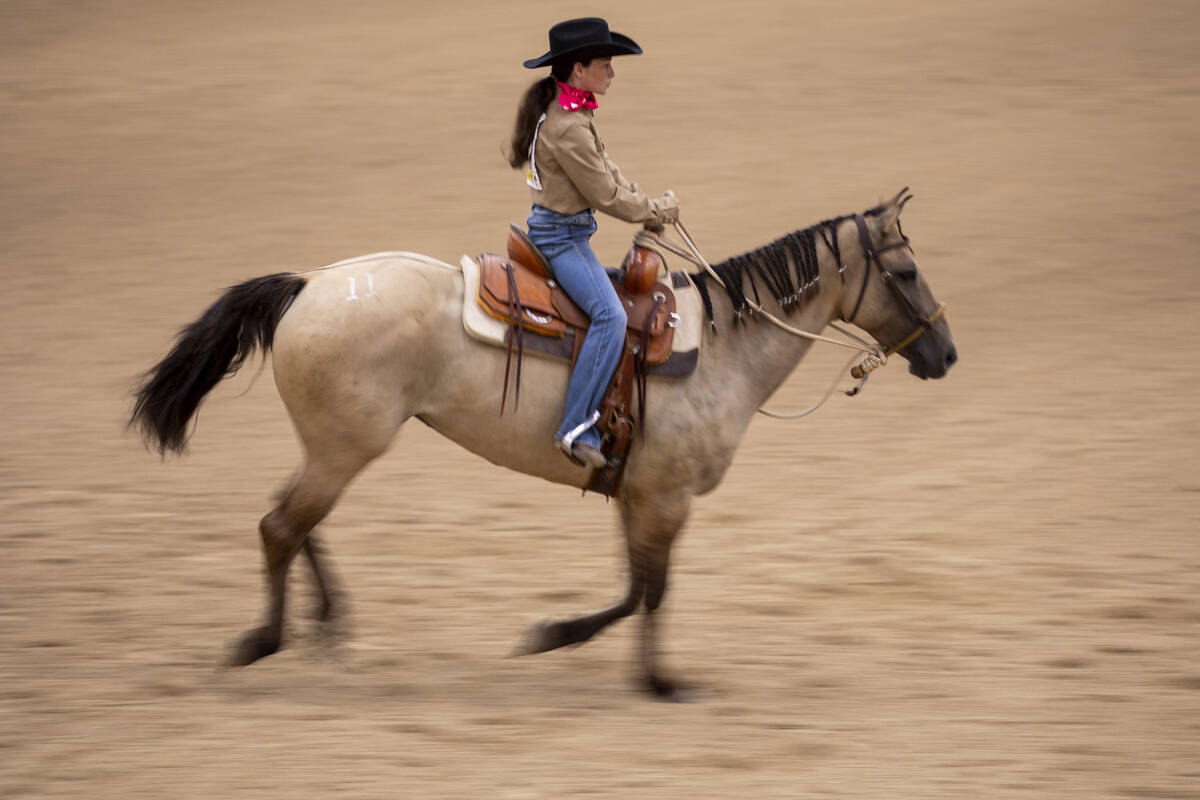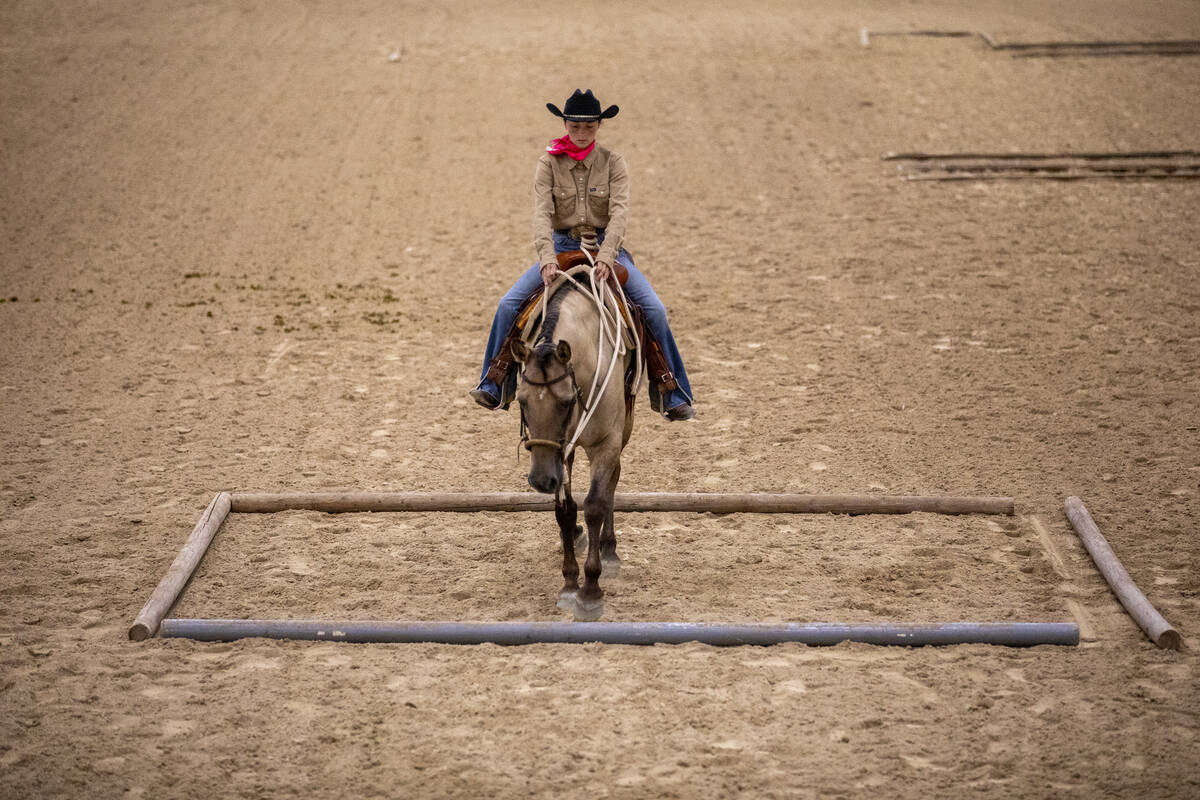Taming the West: Wild horses flaunt poise at BLM Las Vegas competition
It wasn’t a straight shot from Antelope Valley to the smelly stables beneath the South Point Casino.
But Chris Phillips, draped in “Pirates of the Caribbean” Jack Sparrow garb and black eye makeup for the evening, had spent thousands of hours training with his horse for a competition. A showing of trust earned over time.
Months earlier, Phillips adopted his horse — aptly named Wandering Fox Ranch’s Sin City Sister — from the Bureau of Land Management’s Antelope Valley Herd Management Area, located almost 300 miles northeast of Las Vegas near the Nevada-Utah border.
The going rate for a Nevada mustang like Sin City Sister is $125. That investment has paid off, as Phillips earned $50,000 and a first prize honor for his freestyle performance on Sin City Sister, galloping across the elaborate, pirate-themed set he crafted on South Point’s indoor arena.
“It’s a great day,” Phillips told the crowd after his win Saturday, soliciting laughter when he said he let his wife choose his performance theme.
All of the horses that competed in BLM and Mustang Champions’ Mustang Challenge were once wild no less than a year ago, roaming the West’s most remote landscapes. BLM’s Wild Horse and Burro program, though controversial, was created in the early ’70s to thin out growing horse populations that were harming public lands.
On Thursday and Friday, trainers from around the country showed a panel of judges how far they’ve come since beginning the process of domesticating their horse. Only the top 11 competitors advanced to the freestyle championship.
Jenny Lesieutre, a spokeswoman for BLM Nevada’s wild horse program, said the competition highlights some of the program’s best success stories. Nevada and bordering Western states sell horses to trainers as far east as Florida.
Letting every horse stay on public land isn’t an option, she said, especially because of Nevada’s limited drinking water.
“It’s a great thing to see them in the wild,” Lesieutre told the Las Vegas Review-Journal. “But Mother Nature is not kind.”
This competition was unique because a horse auction didn’t follow, she said. While trainers can sell their horses if they choose to, many will cherish the bond they’ve formed with their equine best friend as long as they can.
Taming a symbol of Western freedom
One of those trainers is Amber Espinoza, who operates horse ranches in New Paltz, New York, and Snowflake, Arizona, with her husband, Isidro.
Espinoza, who just missed qualifying for the championship, said she can’t remember the last time she trained a horse for herself. She has since fallen in love with Leyenda — Spanish for legend — who she adopted from southeast Oregon.
That’s something she doesn’t take for granted, having auctioned off other wild horses that she’s tamed, she said.
The couple’s affinity for wild horses is the subject of a forthcoming documentary called “Beyond the Herd.”
Wild horses are an iconic representation of the untamable West, thought to be descended from the horses of Spanish conquistadors. But horse buyers don’t value them, Espinoza said.
“Mustangs tend to be (seen as) the bottom of the barrel,” said Espinoza, who is Mexican-American. “That’s kind of how we feel (as) people of color. We’re kindred spirits.”
The feeling is mutual for Manny Olague, a Mexican-American horse trainer from Arizona who said he quit his job as an electrician in California to work with horses full-time.
Doing so has helped him connect with the history of Mexican cowboys, or vaqueros, he said, noting who he considers to have pioneered Western cowboy culture.
“Wild horses show you who you really are,” Olague said.
‘What goes on 99 percent of the time’
BLM’s adoption program hasn’t always been met with praise.
Amelia Perrin, a spokeswoman for American Wild Horse Conservation, said her organization has long criticized what it feels is an under-funded and misdirected initiative.
Many wonder if conditions of holding facilities are up to par and have criticized the vetting process for who is adopting them. Perrin advocates for fertility management using PZP vaccines, instead, she said her organization has successfully piloted in a facility near Reno.
“Currently, BLM uses a blunt force approach, removing all the horses from the wild,” Perrin said. “The agency should shift their focus to ways to keep wild horses wild and conserve not only the horses, but the lands that they live on.”
Lesieutre, of BLM, said nearly all adoption stories are successes.
“This is really what goes on 99 percent of the time,” she said of Saturday’s event. “Can bad things happen? Absolutely. But it doesn’t happen here.”
Next stop: Kentucky
Mustang Champions, BLM’s partner on the Mustang Challenge, is using an federal grant to host another competition in September.
This time, it’ll take place in Kentucky and be a so-called “English discipline” competition, which is a different style and tests other skills, said executive director Matt Manroe. Hosting these competitions is an effort to relieve over-burdened BLM holding facilities, he said.
“This whole event is public relations,” Manroe said. “Every horse we get out of holding is huge savings.”
And those savings look different for every trainer.
Jeff Cook, of Tucson, Arizona, has grown very close to Tequila Sunrise, who he is selling for $12,000 to a buyer with a luxurious Texas ranch that he considers “horse heaven.” He has trained hundreds of wild horses and considers it a noble mission.
But saying goodbye is never easy.
“I’ve had him for so long,” Cook said, tearing up. “It’s going to be really hard for me to let him go.”
Contact Alan Halaly at ahalaly@reviewjournal.com. Follow @AlanHalaly on X.



